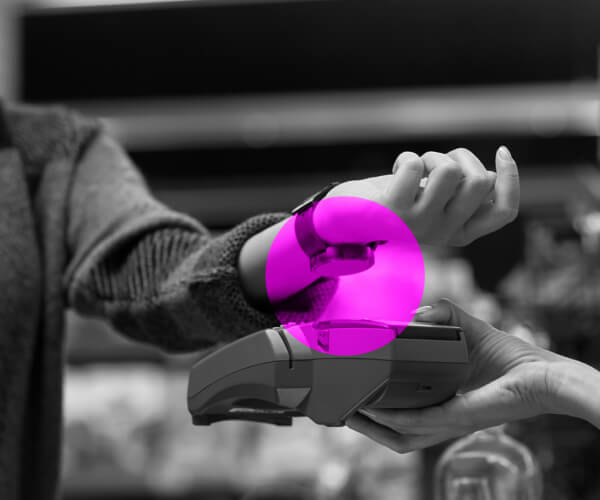In today’s fast-paced world, the pursuit of holistic well-being has become a priority for most and with it, as technology continues to advance at an unprecedented rate, it has ushered in a new era of consumer health technology and wearables. These innovations are transforming the way we monitor and manage our health. But with something so personal as our individual health, understanding what matters most and how brands can help consumers make the right choice is key.
Why? Because the market for consumer health technology and wearables is highly competitive, driven by constant innovation and evolving consumer expectations, established brands face stiff competition from both well-known players and emerging start-ups that specialize in niche areas. For example, Fitbit, with its range of fitness trackers and smartwatches, has been a leader in the field for years.
Apple, with its Apple Watch, has seamlessly integrated health-tracking features into its ecosystem, capturing a significant share of the market. Yet notably, newer emerging brands like Oura and Whoop have gained traction with their advanced sleep-tracking capabilities, comprehensive physiological insights plus their super cool and sleek designs. Indeed Oura is pioneering wearable tech for female health, championing the message ‘your body in your hands’. This is an exciting and an ever-changing market and a key time to dive in for insights!

Wearable fitness trackers, of course, dominate the market in this space and have revolutionized the way we approach not just our physical fitness but our overall wellbeing. These devices, such as smartwatches and fitness bands provide valuable insights into our daily activities, including step count, calories burned and heart rate. But as technology has evolved, so have their capabilities to now include sleep quality tracking and even stress levels.
But with so many devices on the market and so much evolving technology in this space, consumers can quite easily succumb to a paradox of choice here. In addition, the myriad of ways in which our physical health data can be captured (not only via these wearables but by other apps, fitness devices in home and our cell phone itself) means there is a clear opportunity to better understand exactly what need a consumer is trying to fulfil with their wearable and how this integrates and complements broader data points and health practices overall. Brands like Fitbit (Fitbit Official Site for Activity Trackers and More) recognize this and even call it out on their D2C homepage, driving a message around ‘your perfect fit’ and calling out an expected confusion with their ‘trouble choosing’ call to action.
As this market continues to expand, aligning technology with needs and understanding the consumer’s path to transaction is more important than ever.

Another dimension where we are seeing evolving progress in consumer health tech is within the field of ‘FemTech’. The gradual progress in female health wearables has empowered women to take more control of their reproductive health, postpartum journeys and overall wellness. Breast pump technology, for instance, has undergone significant advancements, offering greater convenience and efficiency for breastfeeding mothers.
A brand like Elvie (Smarter technology for women | Elvie Trainer and Elvie Pump | Elvie) is making huge strides in this space, offering innovative, consumer-first technology that offers truly personalized features for moms. But the postpartum feeding journey is complex, moms have options on how to feed their child, whether to pump or not and if so, which brands and devices will be a best fit for their personal circumstances and health.
Much like any other wearable health tech, personal is personal, and understanding consumer pathways to these decisions is vital for later communicating reasons to believe at shelf or online, which of course, need to shine on pack.

While these two product types are just a dip in the expanding ocean of consumer health technology, they demonstrate just how multi-faceted and personal decision-making processes can be when choosing a wearable tech device to monitor and optimize health. We know key drivers will always be at play, such as accuracy, ease of use, battery life, and data privacy. Yet, other, more nuanced and personalized features will also be imperative to get right and communicate. For example, a seamless integration with smartphones and other health-related apps and holistic and tailored approaches to the features that matter most to each individual’s well-being will provide greater personalization overall.
So, in an era where health concerns transcend borders, taking control of one’s own health has become more crucial than ever, and as such, the opportunity and the shopper landscape for these devices is growing and increasingly challenging. Now is the time to better explore and understand just how these solutions fit into consumers’ lives and, more importantly, their journey to browse and buy.
Moving Forward
With specialist teams here at Behaviorally in both technology and health and wellbeing, and a fully customisable solution to exploring consumer decision-making with our TransactionPath offer, we’re well placed to get brands close to decision-making around these products and to support with shopper marketing both on shelf and online to drive shopper growth. If you want to know more about our work in this space contact:
We’d love to talk to you about how we can help so reach out to learn more by contacting us and a member of the Behaviorally team will be in touch.
In the meantime, #behealthy and #bewell
THE AUTHOR

Emma Kirk is VP of Market Development in Europe at Behaviorally and is based in the UK. Despite her British roots Emma loves international travel and work abroad and in the last 15 years has worked in Florida, France and New York City. With a background in Psychology and Sociology Emma loves exploring human behavior while also keeping an eye on socio-cultural trends and how they influence the consumer landscape. Fun fact, she is also a gluten-free food blogger, sharing her foodie finds with her thousands of Instagram followers!
Connect with her on Twitter @Research_Em1 or on LinkedIn.
